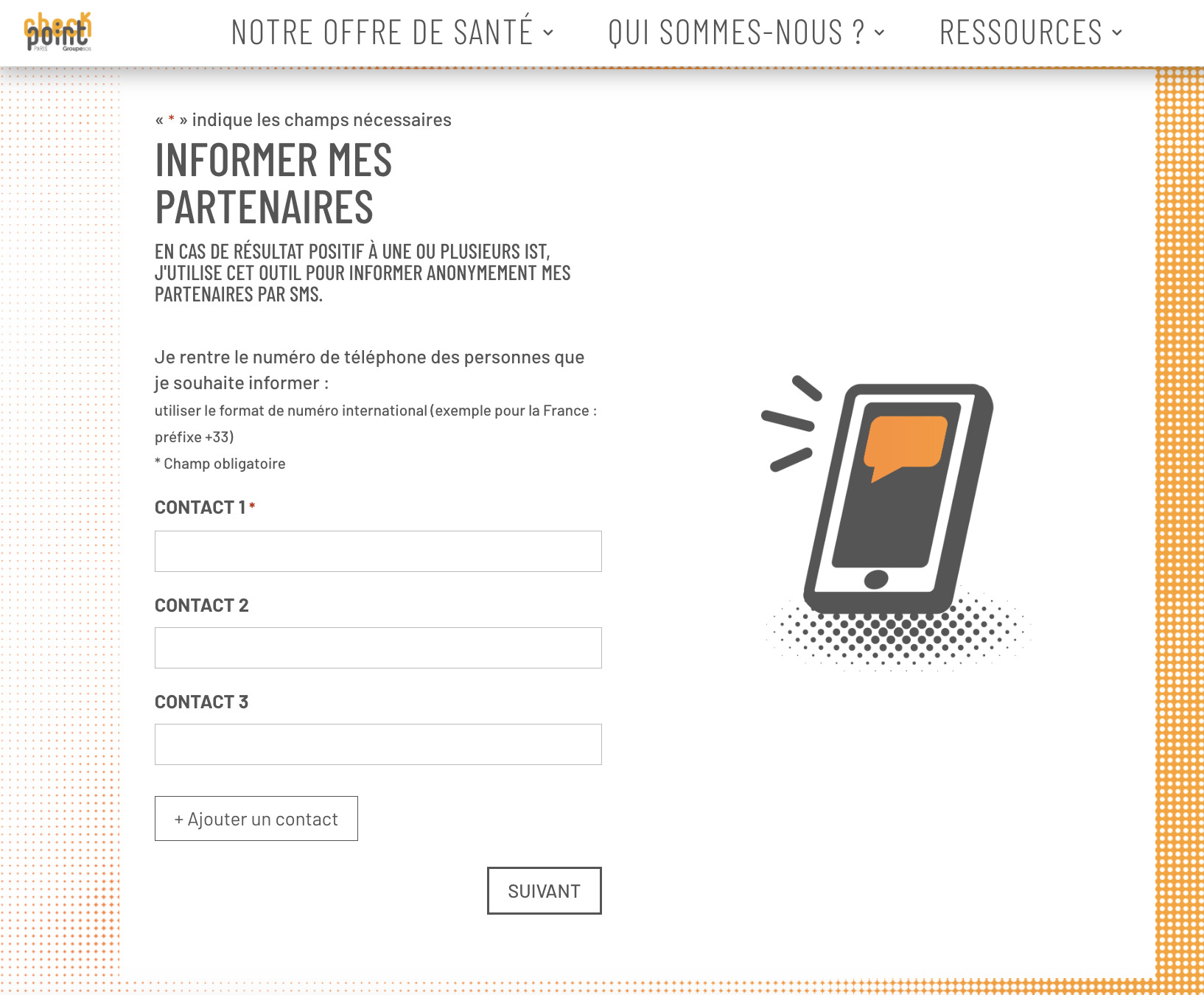The lab report has arrived, bad news, you have an STI! Do not go by the starting point, but rather by those of calling a friend. In fact, the problem arises of having to make the famous phone calls or SMS to previous conquests to update them. Unfortunately, too many people still prefer to skip this essential step, because they are too scared. Between social shame and the need for public health, I return to this practice which may seem humiliating, but instead turns out to be therapeutic.
Benign but shameful diseases
” I learned that I had a clam (chlamydiosis) in January 2022, I immediately called the two people who may have been affected by this transmission. I called the first one in tears, I can’t talk, I was already in shock at the news. I felt dirty, I felt guilty (for me, but also for others) “, says Romane, a young heterosexual woman, about this experience last year.
Chlamydiosis is an infection caused by a bacterium, Chlamydia trachomatis, a very easy to detect STI (sexually transmitted infection). Benign if detected early, it is easily treated with antibiotics. Chlamydia, more commonly known as chlamydia, is one of the most common sexually transmitted diseases. Any sexually active person can be infected, through vaginal, anal or oral intercourse, such as gonorrhea or syphilis.
Ashamed, Romane still called his two former partners to warn them and ask them to be tested. A small exemplary gesture that many prefer to avoid, despite the ease of the process. Maëlle Guichard, prevention facilitator at Checkpoint Paris, explains:
“As an individual, it is important that partners are aware that they have probably been in contact with an STI and take the necessary measures. Indeed, as indicated by the National AIDS Council (CNS), this would allow for the identification of people who have been exposed to sexually transmitted infections (STIs) more quickly. »
Checkpoint Paris is a Community Approach Sexual Health Center (CSSAC) and a Free Information, Screening and Diagnosis Center (CeGIDD) offering a free and inclusive sexual health offer dedicated to LGBTI+ people and workers. There, testing is easy and free. And there are certainly other CeGIDDs near you: vih.org geolocates all those present in mainland France. There is also the possibility of asking your doctor for a prescription to carry out a screening which is then reimbursed by the social security in a medical analysis laboratory in your area.
Stigma STI
For her part, Iris says:
” It happened to me a few years ago, with… scabies. It is considered an STI, among other things, because it is transmitted particularly through very close contact. I was seriously ashamed. My doctor informed me that it was common, that there is an epidemic at the moment, but still… Sounds a bit from another ‘mange’ era. »
In fact, the name is scary and remains associated with a loathsome disease that would be contracted with impurity. However, there is nothing. No offense slut (because it is also out of fear that revealing that we have an STD will damage our reputation that we sometimes keep silent), STDs are not dirty per se, nor due to lack of hygiene, but due to lack of screening, whether you have a very active sexuality , with several partners or not. Iris, however, did not hesitate to contact her usual partner:
“ I called him right away. He laughed and told me that he knew, that some of his friends had already caught her. She could be treated preventively and therefore avoid the prisons of the disease, which occur after a long incubation period, to which I was entitled. Nothing crazy, either. I took it on myself and it was fine. The boy was cool, I didn’t want to leave him with that. For some others, I may have said nothing. »
However, failing to warn in case of risk can lead to complications.
public health efforts
To facilitate the process of notifying its current or past partners, Checkpoint Paris has created a practical tool, explains Maëlle Guichard:
“We have developed a tool accessible from our website: it allows you to send an anonymous SMS to your partners. To do this, simply enter the telephone number of the people to contact. The sender’s number is not required and therefore cannot be disclosed. »
Thanks to this initiative, the potentially infected person is notified without having to deal with the boring message himself.

Beyond the simple personal approach, breaking the chains of contamination is an essential cog in the fight against STIs on a collective scale. ” From a public health perspective, it is essential to end the chains of contamination as soon as possible. The systematic proposal of notification to the person who has tested positive for an STI must be carried out with respect for the rights of patients and their cohabitants. This strategy is effective at targeting people who are unaware that they have been exposed to an STI risk concludes Maëlle Guichard of CheckPoint. Tip: Get tested regularly!
Do you like our articles? You will love our newsletters! Sign up for free on this page.
Source: Madmoizelle
Mary Crossley is an author at “The Fashion Vibes”. She is a seasoned journalist who is dedicated to delivering the latest news to her readers. With a keen sense of what’s important, Mary covers a wide range of topics, from politics to lifestyle and everything in between.




